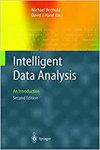伊拉克保健机构面临的电子保健技术障碍
IF 0.8
4区 计算机科学
Q4 COMPUTER SCIENCE, ARTIFICIAL INTELLIGENCE
引用次数: 0
摘要
由于信息技术完整性差和数据复杂,健康记录管理问题对伊拉克保健部门产生了不利影响。为了解决这一问题,电子保健服务可以提供存储、管理和检索健康相关数据的其他方法。这些方面对于在服务提供者方便的情况下使用多个平台跟踪患者的健康状况非常重要。然而,有许多问题阻碍了伊拉克保健机构广泛采用电子保健服务,例如安全和隐私问题、与政策有关的合法性问题及其实施。本研究的意义在于确定了能够成功影响技术人员积极接受伊拉克医院使用电子卫生信息系统的关键方面。采用简单的随机抽样技术,对伊拉克各保健组织的104名技术人员进行了自我管理的调查。利用PLS-SEM方法对编制的有序数据进行非参数第二代多变量分析。结果表明,有几个因素对医生在伊拉克医院使用电子保健产生了有利影响,包括硬件和软件的可用性和可负担性、信息和通信技术支持服务、网络可靠性、隐私和安全。这些结果对于帮助理解电子卫生系统在卫生数据管理方面的重要性,以及为政策制定者提供相关建议,以便为卫生保健专业人员提供指导,发布建议和指令,以不断考虑在工作中使用先进的信息和通信技术。本文章由计算机程序翻译,如有差异,请以英文原文为准。
E-Health technological barriers faced by Iraqi healthcare institutions
The health records management issues have detrimentally affected the Iraqi healthcare sector resultant from the inferior information technology integrity and the complicatedness of data. In order to resolve this problem, other methods of storage, management, and retrieval of health-related data can be offered by e-Health services. These aspects are important in tracking patients’ health conditions using multiple platforms at the service provider’s own convenience. However, there are numerous issues that hinder the extensive adoption of e-Health services by the health establishments in Iraq, such as issues on security and privacy, legalities connected to policies, and its implementation. The significance of the current study is its identification of the crucial aspects that will lead to the success of impacting the technical staff towards their positive acceptance and behavior with regard to the employment of e-Health information system in Iraqi hospitals. A self-administered survey was carried out on 104 technical staff from various healthcare organizations in Iraq using a simple random sampling technique. A nonparametric second-generation multivariate analysis was conducted on the compiled ordinal data by the utilization of the PLS-SEM approach. The outcomes indicated the favorable impact of several factors on the doctor’s employment of e-Health in Iraqi hospitals, comprising Availability and Affordability of the hardware and software, ICT Support Service, Network Reliability, Privacy, and Security. The results are important in assisting the comprehension of e-Health systems in the management of health data, in addition to the provision of the pertinent recommendations for policymakers to provide guidance, issue advice, directives to the healthcare professionals toward the continuous consideration of using advance information and communications technology at work.
求助全文
通过发布文献求助,成功后即可免费获取论文全文。
去求助
来源期刊

Intelligent Data Analysis
工程技术-计算机:人工智能
CiteScore
2.20
自引率
5.90%
发文量
85
审稿时长
3.3 months
期刊介绍:
Intelligent Data Analysis provides a forum for the examination of issues related to the research and applications of Artificial Intelligence techniques in data analysis across a variety of disciplines. These techniques include (but are not limited to): all areas of data visualization, data pre-processing (fusion, editing, transformation, filtering, sampling), data engineering, database mining techniques, tools and applications, use of domain knowledge in data analysis, big data applications, evolutionary algorithms, machine learning, neural nets, fuzzy logic, statistical pattern recognition, knowledge filtering, and post-processing. In particular, papers are preferred that discuss development of new AI related data analysis architectures, methodologies, and techniques and their applications to various domains.
 求助内容:
求助内容: 应助结果提醒方式:
应助结果提醒方式:


